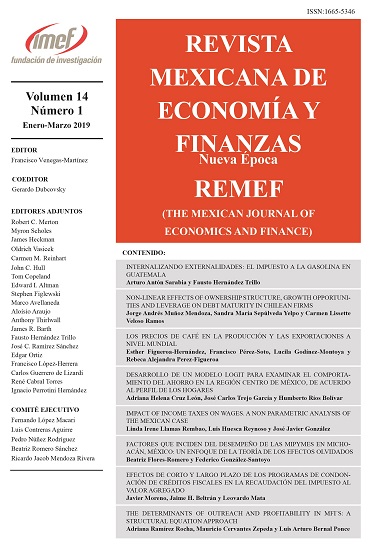Internalizando externalidades: El impuesto a la gasolina en Guatemala
DOI:
https://doi.org/10.21919/remef.v14i1.356Keywords:
gasoline tax, pollution, congestion, GuatemalaAbstract
(Internalizing externalities: Gasoline tax in Guatemala)
The objective of this article is to estimate the optimal level of the tax on gasoline to internalize the costs caused by the use of cars in a developing country such as Guatemala. The estimation is done using the methodology by Parry and Small (2005). The results suggest an optimal tax level of USD27.5 cents per liter. Forty percent of the tax is explained by the externalities associated to traffic congestion. The estimated level of USD27.5 cents per liter is above the tax currently imposed for the two types of gasoline sold in Guatemala, thus their adjustment is recommended. There is a degree of uncertainty regarding the proper value of some of the parameters of the model; however, the sensitivity analysis reports that the results are robust. The study stands out among others because it offers a detailed procedure for the estimation of this tax, using information from a developing country. Finally, the need to implement public policies to decrease the adverse effects of the tax, especially among middle and lower decile households.
Downloads
Metrics
Published
How to Cite
Issue
Section
License
PlumX detalle de metricas








